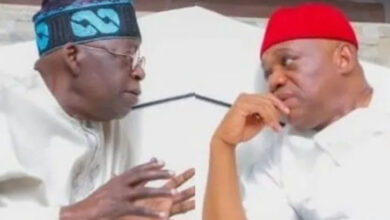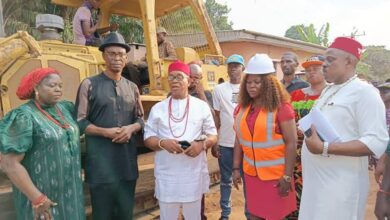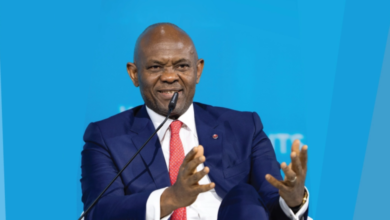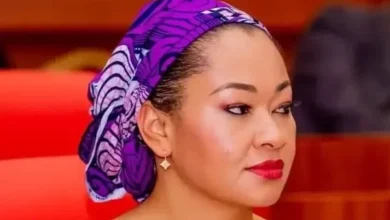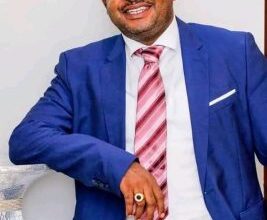INEC May Spend ₦870 Billion on 2027 Elections — Ex-Yakubu Adviser Warns
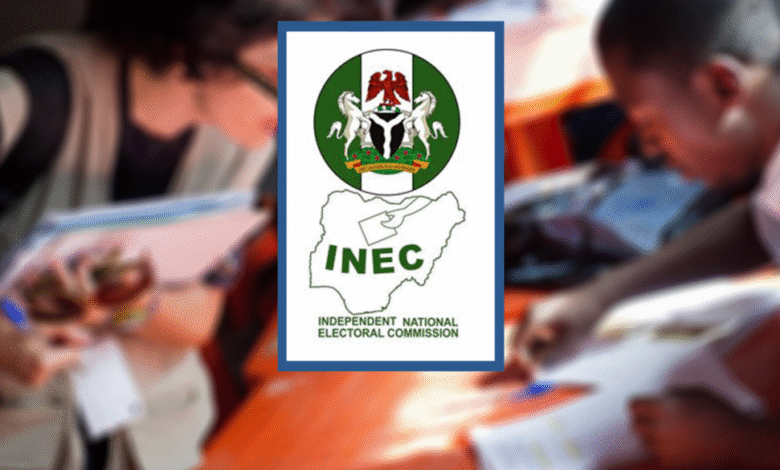
Sources have revealed that the new chairman of Nigeria’s Independent National Electoral Commission (INEC), Professor Joash Ojo Amupitan, SAN, was actually a member of the legal team of President Bola Ahmed Tinubu and the All Progressives Congress (APC) during the Presidential Election Petition Tribunal in 2023.
This was disclosed in a fact check amplified by the Good Governance Group (GGG) and obtained by Diaspora Digital Media (DDM).
According to Good Governance Group, “Prof. Amupitan, a distinguished Nigerian legal scholar, professor of law at the University of Jos, and Senior Advocate of Nigeria—was part of the legal team representing President Bola Ahmed Tinubu and the All Progressives Congress (APC) in the 2023 presidential election petition tribunal.
“The tribunal, presided over by the Presidential Election Petition Court (PEPC), heard challenges to Tinubu’s victory in the February 2023 general elections, primarily from the Peoples Democratic Party (PDP) led by Atiku Abubakar and the Labour Party (LP) led by Peter Obi.”
GGG stated the key details of Amupitan’s role as follows:
(1) Amupitan served as lead counsel for the APC and Tinubu during the proceedings.
This role involved defending the election’s integrity against allegations of irregularities, non-compliance with electoral laws (e.g., the Electronic Transmission of Results or IReV system), voter suppression, and Tinubu’s eligibility under Section 137 of the 1999 Constitution.
(2) The APC’s defense, coordinated under lead counsel Chief Wole Olanipekun, SAN, argued that the petitioners failed to substantiate claims of widespread malpractice.
The report showed that Amupitan contributed to this strategy, focusing on legal precedents in electoral law, evidence admissibility, and procedural dismissals.
Eventually, the tribunal dismissed the petitions on September 6, 2023, upholding Tinubu’s victory in a unanimous decision after one judge recused himself.
(3) APC assembled a team of over 50 Senior Advocates, including Olanipekun, Lateef Fagbemi (SAN, now Attorney-General), and others like Gordy Uche (SAN) and Adeniyi Akintola (SAN).
“Amupitan’s expertise in corporate governance, evidence law, and electoral reforms aligned with the defense’s emphasis on dismissing petitions for lack of merit,” GGG noted.
The group cited multiple reports that corroborated their findings.
It stated: “This involvement has been corroborated in multiple reports, particularly amid recent scrutiny following Tinubu’s nomination of Amupitan as INEC Chairman in October 2025.
“Civil society groups, such as the Coalition of Civil Society Organizations in Nigeria (COCSON), highlighted his prior role as a potential conflict of interest, urging rejection of the nomination to preserve INEC’s neutrality.
“COCSON explicitly noted Amupitan’s service as “lead counsel to the APC and President Tinubu during the 2023 Presidential Election Petition Tribunal,” arguing it could erode public trust in electoral impartiality.”
GGG pointed to Amupitan’s participation as evidence of his deep engagement in high-stakes electoral litigation from his over 30 years of legal practice since he was called to the Bar in 1988.
It emphasized, however, that his nomination and approval by the Council of State on October 9, 2025, and pending Senate confirmation “has reignited debates on partisanship in public appointments”.
Critics rely on this piece of information as evidence of involvement with the ruling party, even though Tinubu described him as apolitical and a man of integrity.
Besides his involvement with APC, a concerned Nigerian, Dr. Dayo Osifeso, raised concern over Amupitan’s academic qualifications.
Dr. Osifeso faulted the quick succession Amupitan seemingly grabbed his qualifications as presented in a State House press release issued by a presidential aide Mr Bayo Onanuga.
He wrote: “There are a lot of grey areas in this Prof Joash Ojo Amupitan’s CV.
“Let me speak to just a few of them for now:
- He was born in 1967. There’s no problem in that.
- ‘After completing primary and secondary education’, he attended Kwara state Polytechnic… from 1982 to 1984.
“Note: we are neither told the names of the primary and secondary schools he attended, nor the time lines of his attendance.
“Moreover, by 1982 when he was said to have attended the Kwara state Polytechnic; he was just 15.
“How did he do it back then? Maybe if we have the details of his primary and secondary schools attendance, we would have better understanding.
“Additionally, what did he study at the Polytechnic?
- He attended University of Jos 1984-1987 to study law.
“How did he get a law degree in Nigeria within 3 years? Law is 5 years.
“But he became the Head (of Department) of Public Law 2006-2008, and Dean of the Law Faculty 2008-2014.
“That means that he became the Head of Department before earning his PhD, and the Dean of faculty one year after his PhD.
“How did these happen in a federal university, not even in a mushroom private university?
“I have a fair understanding of the academic. Such things don’t happen.
“I believe the people who packaged this CV owe us more explanation of the missing links in the CV,” Osifeso concluded.
Post Views: 271

